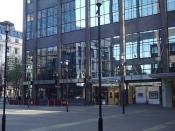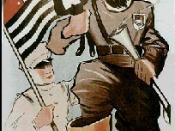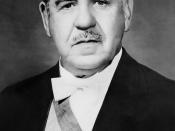Brazil's transformation from an authoritarian regime to a presidential democracy was a slow and
faltered attempt. From the early suggestions of democratic development, there were both
administrations that contributed to democratic growth, as well as administrations that opposed this
liberalization. This led to an instability in the Brazilian form of democratic government, their
economy, and their political parties. The people's reactions to these instabilities confirm the fact that
the Brazilian democratic regime was not working effectively. Even though Brazil was governed
under a democratic system because the president was chosen by the people, the president rarely
acted in a democratic manner.
The first signs of a modern democratic government in Brazil appeared in 1945 when the military
deposed President Getúlio Vargas. Vargas had created a "semi-corporatist authoritarian regime (the
Estado Nôvo) based largely on the military."1 Once Vargas had been removed from power, Brazil
instituted a competitive multi-party system. Multi-party systems are not a requirement for
democracy, "but certainly the history of democratization has been associated with the development
of parties and their legitimation."2
This step towards a true democratic government was negated in 1964 when the military forced a
reversion to an authoritarian form of rule. The president remained the top government official, but he
was merely a puppet to the military. The Army officer corps choose a general who the Congress
would elect for president for a set term.3
Castelo Branco managed to hold the hardlinersù demands at bay with the enactment of concessions.
To make his successor's transition to office easier, Castelo Branco and his advisers reformed the
constitution so that the next president could assume power in a "normal" constitutional regime.5
General Artur da Costa e Silva took over as President in 1967. He experienced an average
economic growth of eleven percent per year, which lasted...


